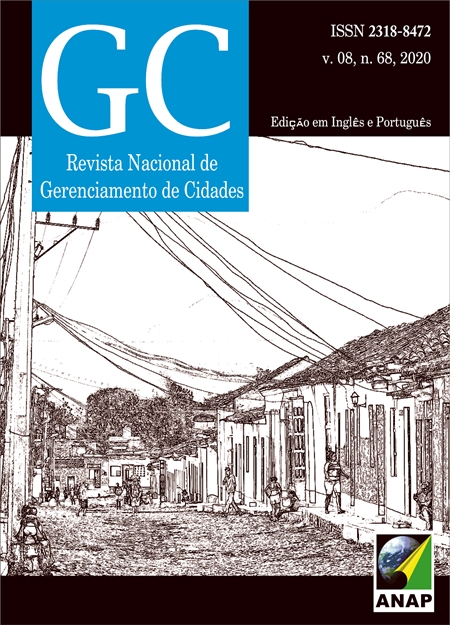Analytical reflection on tenement studies in the city of São Paulo
DOI:
https://doi.org/10.17271/2318847286820202732Keywords:
Tenements, vulnerability, popular housingAbstract
The tenements, since the 19th century and until currently, 2020, are an alternative housing for the most vulnerable population who cannot afford to pay for better housing. In this article we will review the literature with bibliometric analysis of what has been published that is most significant with a focus on the city of São Paulo. The research was carried out in the main academic document bases available for public access and free of charge, Google Scholar, Scielo and Directory of Open Access Journals and includes doctoral thesis, master's dissertations, undergraduate monographs, graduate conclusion works, scientific articles and publications. When analyzing the production in the tenements, we divided it into three main categories: the tenement as a complaint; the tenement as a potential; and the tenement as a reality. Of the forty-nine in the scientific literature, 57% fall into the complaint category, 30% into the potentiality category and 12% into the reality category. This subject has been studied by different lines in courses from the most varied areas of knowledge, passing through architecture with more than 51% of scientific literature, and passing through engineering, geography, sociology and even philosophy, showing its interdisciplinary nature. From the analysis and the observed gaps, we present possible directions for future research.Downloads
Download data is not yet available.
References
Published
2020-12-22
Issue
Section
Full Article
How to Cite
ALBUQUERQUE LUI, Marcos Venancio Cavalcanti de; CYMBALISTA, Renato. Analytical reflection on tenement studies in the city of São Paulo. National Journal of City Management, [S. l.], v. 8, n. 68, 2020. DOI: 10.17271/2318847286820202732. Disponível em: https://publicacoes.amigosdanatureza.org.br/index.php/gerenciamento_de_cidades/article/view/2732. Acesso em: 25 feb. 2026.















